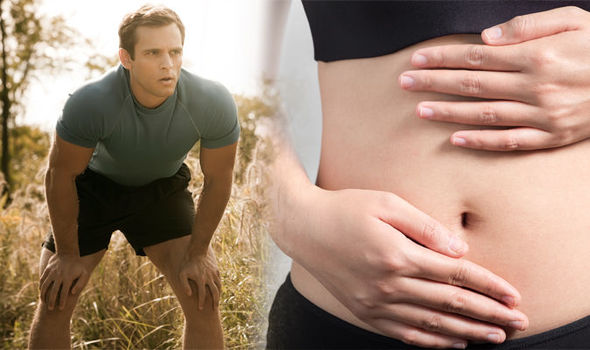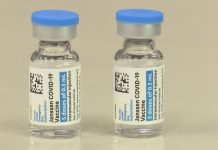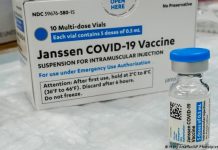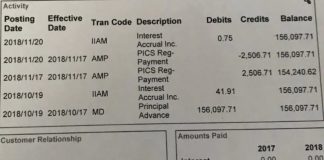
Researchers say they noticed changes in the gut microbiome after six weeks of exercise. The gut makeup returned to normal after exercise was dropped.
If you needed another reason to exercise, try this. Exercise can change the composition of your gut microbiome.
There are trillions of microscopic organisms in the gut that play a crucial role in our overall health and function of the body. In a study from the University of Illinois, researchers found that exercising for just six weeks could have an impact on the microbiome.
“These are the first studies to show that exercise can have an effect on your gut independent of diet or other factors,” said Jeffrey Woods, PhD, a University of Illinois professor of kinesiology and community health who led the research with former doctoral student Jacob Allen, now a postdoctoral researcher at Nationwide Children’s Hospital in Ohio.
What researchers discovered
Woods and Allen conducted studies both on mice and humans.
In the human study, the researchers recruited 18 lean and 14 obese sedentary adults.
They began by sampling participants’ gut microbiomes and then started them on an exercise program consisting of cardiovascular exercises for 30 to 60 minutes three times a week for six weeks.
At the end of the six weeks of exercise, the researchers again sampled the participants’ gut microbiomes.
They found that the microbiomes had changed. Some participants experienced an increase in certain microbes and others a decrease.
Many had an increase in gut microbes that assist in the production of short-chain fatty acids. These fatty acids reduce the risk of inflammatory diseases as well as type 2 diabetes, obesity, and heart disease.
After the initial period of six weeks, the participants then returned to six weeks of their normal sedentary lifestyle.
The case for regular exercise
When the researchers sampled participants’ microbiomes again at the end of this sedentary period, they found the microbiomes had reverted back to how they were before the period of exercise.
Woods said this suggests the impact of exercise on the microbiome for a period of just six weeks may be transient.
“This tells us that exercise needs to be done regularly and that stopping exercise causes reversion, not surprising as this is evident in other exercise training-induced adaptations in other tissues like muscle,” he told Healthline.
Woods said this calls for further study into exercise for a longer period.
“We need to understand if longer periods of exercise cause greater change.”
Dr. Emeran Mayer, a gastroenterologist at the University of California Los Angeles (UCLA) and author of the book The Mind-Gut Connection, says science has only recently come to understand the importance of the gut microbiome in overall health.
“They have been completely ignored until about 10 years ago. Now there has been an explosive growth of interest in this area,” he told Healthline.
“They have a very important role in all aspects of health, particularly metabolic health. They have a very important role in most of our organ functions and… play important roles in some disease like obesity, depression and autism spectrum disorders,” he said.
Given that the microbiome in the Illinois study only changed for the period of exercise, then reverted back to normal, Mayer said it’s hard to establish the extent to which exercise benefits the gut specifically.
Lifestyle also important
For those experiencing conditions like irritable bowel syndrome or inflammatory bowel disease, Mayer says lifestyle factors are often a good place to start in improving quality of life.
“With my own patients, I would always recommend lifestyle modifications. Dietary, exercise, meditation, stress management. This is always part of any kind of treatment I give to the patients I see who come to me with gastroenterological problems,” he said.
Dr. Geoffrey Preidis is a scientific advisory board member for the American Gastroenterological Association Center for Gut Microbiome Research and Education. He said the University of Illinois study raises some important questions about changing microbiome.
“These studies add important knowledge regarding the influence of body composition on the microbiome’s response to exercise, and regarding the transient nature of this response once an exercise regimen is abandoned. An important question that remains unanswered is whether these microbiome changes are responsible for some of the long-term benefits of exercise to human health,” he told Healthline.
It’s well established that factors such as diet and antibiotic use can impact the microbiome. But there are many other elements that can influence the microbiome.
“Age, genetics, body composition, medications, the presence of disease, diet changes, and stress (such as sleep deprivation) are some of many factors that can impact the composition or function of the gut microbiome,” Preidis said.
Microbiome sensitivity
Although there are still questions surrounding the impact exercise has on the body and the gut, changes in the body due to exercise could also be factors that alter the microbiome.
“Gut microbes are highly responsive to their intestinal environment; they sense and integrate signals from both their human host and the outside world. Even subtle changes can cause specific populations of microbes to expand or certain microbial genes to become active. Although our understanding of how exercise affects the body remains incomplete, some of the many factors that might trigger responses from the gut microbiome include changes in blood flow, circulating hormones, and intestinal motility,” he said.
As for whether this study should be a reason to exercise, Mayer said it’s important to remember the lasting impact of exercise on the gut is yet to be established.
“People that exercise do not have a permanently different microbiome than from the time they didn’t exercise, it’s just while they’re exercising. It’s like while you’re taking probiotics you have some beneficial changes, but after 48 hours after stopping the probiotic, you don’t see that effect anymore,” he said.
But Mayer says exercise is a good idea regardless of whether it will alter your microbiome.
“If you want to pick one thing you can do to enhance your health, it probably is exercise, right after comes the diet. For optimal health, overall wellness, overall resilience the answer is an absolute yes, daily exercise is a key component of that,” he said.













